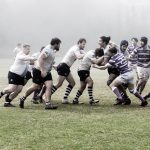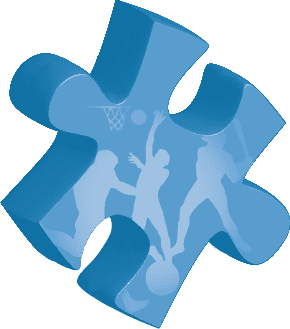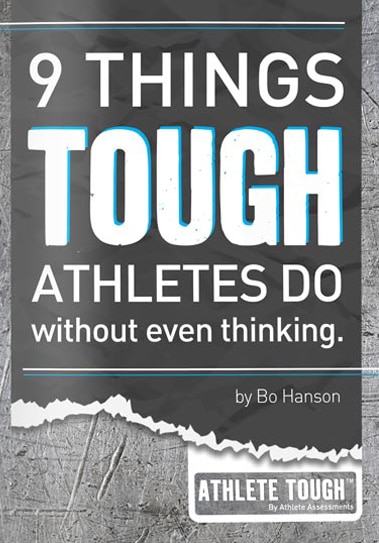It’s a unified opinion amongst coaches that the athletes of today lack resilience and aren’t as ‘tough’ as those from previous generations. This isn’t just referring to physical toughness but being mentally tough too.
But we beg the question whether Gen Y and Z athletes actually know what toughness means? Do they understand the value of a mental framework that pushes you to complete every practice, perform under pressure, and get through difficult challenges? Have they been taught what these strategies are and how to rely on them when the scoreboard isn’t in their favor? Are they resilient enough to bounce back from injury? This article identifies a WISE approach to this tough challenge.
As a coach, you can’t be there for your athletes at all times. You can’t be there on ‘the field’ to talk them through pivotal moments of competitions, or discuss every issue your athletes have during training, and we’ll explain why it can be better sometimes if you’re not. But, you can ensure your athletes develop and have strategies to capitalize on every opportunity to rise above adversity when the situation is against them.
Explaining mental toughness using simple terms and a simple equation, can create a competitive advantage by ensuring they develop these essential mental skills.
How do you define grit, mental toughness, and resilience? Are they interchangeable terms, and do they share the same meaning?
Being mentally tough does not necessarily mean you have grit.
Grit refers to having the ability to stay committed to the long-term pursuit of a goal. Grit is a very useful quality to have, but mental toughness refers to the critical capacity to perform under pressure, in the heat of the moment, not in practice but in competition when people are watching.
Senior Consultant, Director of Athlete Assessments, and creator of the ATHLETE TOUGHTM Program, Bo Hanson, explains, “If you’re lining up for a 100m sprint, you must perform at your best in a matter of seconds. These moments come down to having effective strategies to deal with the immediate circumstances and pressure, and not just long-term perseverance or grit.”
“Establishing effective strategies means breaking down long-term goals into short-term steps that you can focus on and execute efficiently and successfully every time. Most tough athletes often adopt this simple process without even realizing.”
Adding to the ranks of mental skills, Bo outlines the importance of resilience and what it looks like in a sporting context. He says, “Resilience will sustain an athlete in their sport long-term. It’s the ability to overcome obstacles in an athlete’s journey, whether it be coming back from injury or facing tough competition, becoming resilient requires skills, all of which can be taught. Athletes can develop resilience. They can start small and learn strategies so that when they face a big obstacle, they’ll know exactly what to do to achieve their end goal regardless of the circumstances.”
Keeping this in mind, the challenge that coaches struggle with the most is ‘how do you develop mental toughness’ and facilitate the learning of these mental skills for your athletes?
4x Olympian and 3x Olympic medalist, Bo Hanson, developed the ATHLETE TOUGHTM Handbook and Video Series to give coaches the practical resources they need to teach these mental skills to their athletes.
Bo says, “I have experienced firsthand the difference mental skills make in distinguishing top athletes from their competitors. They shape your approach to challenges and ultimately your life. I am always asked by coaches for my input into building mental skills, so I developed the ATHLETE TOUGHTM program, which uses the W.I.S.E equation, to make a simple, usable, and digestible program for busy coaches and their athletes.”
“Fundamentally, I believe your behaviors and mental skills are largely a function of your environmental influences. The environments and cultures you are exposed to will ultimately shape the behaviors you exhibit and how resilient you’re able to be when overcoming different challenges and circumstances.”
The fact is, mental toughness and resilience are skills that can be learnt and taught with enough time and energy. Let’s take a look at the way the ATHLETE TOUGHTM program breaks these skills down and provides a framework to help develop your athletes’ mental skills.
A W.I.S.E Approach to get ATHLETE TOUGHTM
Mental toughness is an integral factor in achieving long-term success both as an individual athlete and collectively as a team, and it is backed up by extensive research, experience, and proven strategies for development.
Bo Hanson, uses strategies learnt during an extensive Olympic career, and refined as a coach and consultant, to help coaches improve the mental skills of their athletes. Through this process, Bo discovered that there are 4 key elements that tough athletes implement on a daily basis. These elements are what comprises the W.I.S.E equation.

W – Your Big WHY?
Being ATHLETE TOUGHTM means finding the internal motivation that drives you to overcome any obstacle. Motivation inherently involves finding a significant reason for why you do what you do. In difficult situations, you need to hold a deep connection and understanding of why you play your sport in order to overcome adversity and achieve a positive outcome.
When motivation wavers, most athletes search for an easy option, take short cuts, or reduce their effort. This is usually the result of either forgetting why they’re competing or their reasons are no longer compelling enough to give 100%. This goes against the foundations of what it means to be ATHLETE TOUGHTM.
There are a wide range of reasons why athletes choose to be involved in sport. Whatever your reason is not what matters, so long as you know what it is and are deeply connected to it.
Bo says, “In my own experience, I found my motivation for being involved in rowing was to become an Olympian. I wanted to represent my country, which progressed into winning an Olympic Medal.”
“My motivations began very goal-oriented and material in nature. Over time, I learnt how motivations can evolve and towards the end of my rowing career, I realized I really liked being part of a great team and enjoying the valuable relationships built with my crew mates. I enjoyed being mentored by my coach and the sensation of rowing with perfect timing and moving the boat fast as a crew.”
“I found having a goal sharpened my focus and I could direct my energy to not just ‘enjoying’ my sport, but to improving my level of performance each day. This is not to say I suddenly became fixated on outcomes alone. Not at all. Instead, I could simply visualize my outcome and develop a process of short-term goals to achieve it. Fundamentally, I knew my ‘Big Why’.”
I – Identity
Having a tough identity means having the resilience to overcome or come back from difficult situations. Resilient people don’t focus on failures, instead they keep pushing through tough times, rise up against adversity, learn from mistakes, and keep moving.
The New Zealand All Blacks Rugby Union team are a great example. Regarded as one of the world’s most successful elite sporting teams, the All Blacks have sustained long term world-class success spanning multiple generations of teams and competitions. They have proved time and again that the standards they implement on a daily basis ensure they know how to perform under pressure and create winning outcomes against the toughest opponents.
They exemplify going the extra mile to be champions, and each and every team member has developed what we consider a ‘Tough Identity’.
There’s a quote that sums this up well which goes, “No one looks after the All Blacks – the All Blacks look after themselves” and this aligns perfectly with the way a tough athlete thinks.
According to James Kerr, the author of ‘Legacy’, a book about the All Blacks “a values-based, purpose-driven culture is a foundation of the All-Blacks’ approach and sustained success.”
When researching the All-Blacks’ culture, Kerr determined the key to their success came through their commitment as players and as a team to a central narrative, by managing their culture and attaching the players’ personal meanings to a higher, collective purpose.
“It’s not so much what the All Blacks do, but rather the team’s identity that matters – who they are, what they stand for, and why they exist,” says Kerr.
Kerr elaborated by saying the All Blacks challenged themselves to always improve, and find ways to get better, even when they are the best. Especially because they are the best.
The All Blacks understand what it means to be mentally tough, and they inherently believe they are in everything they do. But it’s more than just how they act, toughness is part of who they are, it’s ingrained in their identity. That is why they’re the best in their sport and continue to push the standard in an upward direction.
To have a tough identity means knowing that words have no value without action, tough athletes take action.
- They know that developing resilience is like any other muscle and they need to practice it every day;
- They know that the way they handle setbacks, will only add to their success story;
- Tough athletes know they’re tough and understand it’s part of their personal identity, not just how they behave;
- They train hard to become technically and physically prepared for tough situations and they rise to the occasion;
- They know their ‘Big Why’;
- They earn their success and value as the most fulfilling rewards come from their own efforts;
- Tough athletes set goals;
- They encourage others;
- And they have their own measures of performance.
Most importantly, tough athletes never give up, never quit on their team, and never quit on themselves.
S – Strategies
When we consider some of the world’s toughest people, the US Navy SEALs certainly fit the brief. People who are deployed into environments that civilians couldn’t imagine, to create successful outcomes where other military units may not have the same capacity.
So, how do these people develop the mental toughness required to reliably perform their roles in life-or-death situations? The SEALs use a set of simple strategies and mental skills that they implement, train with, and develop further on a daily basis.
Athletes at the very top of their sport know what it means to be mentally tough and understand the value of developing mental skills to consistently perform under pressure. Just like the SEALs, those who operate at the highest level of their chosen vocation implement strategies and discipline to work on themselves and practice these strategies every day.
Mental toughness is not some mythical quality, but rather something that can be learnt and developed using proven and effective processes like those Bo Hanson outlines in the ATHLETE TOUGHTM Handbook and Video Series.
Bo says, “A great way to address mental toughness is like developing any other muscle. You work and train the muscle consistently in a suitable environment like a gym, using the proper technique, and over time you would achieve muscular growth.”
“The same goes for building mental toughness. You need to train daily to ensure you are mentally and physically prepared to execute your role to the best of your ability in difficult situations, where the pressure to perform is at its highest.”
“This can only be achieved by exposing yourself to pressure, pushing the limit of your abilities and constantly driving for higher performance standards. To do this every day requires discipline, and it is uncomfortable. But being uncomfortable is the lifeblood of what it takes to be ATHLETE TOUGHTM.
Bo explains why a coach must play an active role in developing the mental toughness of their athletes.
“I developed ATHLETE TOUGHTM to give athletes and coaches simple processes they can understand and use to develop the mental skills and attributes required to stay tough under pressure. As influential figures in athletes’ lives, coaches should be implementing these strategies daily, to help their athletes grow as people, as well as competitors,” he said.
Research conducted during the 2008 Canadian Olympic Study identified the coach-athlete relationship as one of the most significant factors contributing to the consistent success of athletes competing at the top of their sport.
Bo explains that, “This study aimed to examine the components of elite athletes’ performances to determine what contributed to the success of gold medal winners versus the unsuccessful outcomes of their competition.”
“The research process involved interviewing 27 Olympic and Paralympic athletes, as well as 30 Coaches. From analysis of these interviews there were five key themes that emerged. The most critical factor of elite athlete success was determined to be the coach-athlete relationship. This is precisely why the role of a coach is instrumental in developing their athletes’ mental skills and toughness.”
This research has been reinforced by a more recent study that focused on superelites, elite athletes with multiple gold-medal performances. Presented in November 2015 at the World Class Performance Conference in London, the study found that superelite athletes expressed feeling that their emotional needs were fully satisfied by coaches who acted as friends, mentors, and unwavering supporters – in addition to excellent technical support. This experience was not shared by elite athletes who did not win medals at the World Championship or Olympic level.
Bo says, “At Athlete Assessments we often speak about the significance of a quality coach-athlete relationship and how important this is to improve an athlete’s performance.”
“Athletes who form close relationships with their coaches will feel more comfortable to explore their sporting role, push their limits, take risks to perform better, and be confident in their ability to give 100% effort.”
“These same concepts apply to children with responsible parents, who encourage this kind of development by providing support in the right environments. This is why the coach-athlete relationship supersedes all other performance factors, it is literally hardwired into us from birth.”
The ATHLETE TOUGHTM program incorporates this important factor and provides step-by-step processes to achieve a positive, sustained coach-athlete relationship.
E – Environment
Many studies into successful athletes have identified some degree of ‘struggle’ and adversity in which they had to overcome on their journey to the top. Learning to adapt to adversity helps develop a more resilient approach to their sport and prepares them for future challenges. In fact, many consider struggle to be an essential component in building toughness.
Most elite athletes and those on elite pathway programs have access to the best equipment, coaches, practice and competition facilities, and funding, in the pursuit of maximizing performance. Although it is great to support our athletes, there is a point where this can be largely detrimental to building mental skills and toughness in the athletes.
ATHLETE TOUGHTM discusses the need for enabling environments to practice and develop mental toughness. These environments are characterized by a degree of struggle, discomfort, empowerment to make choices and decisions, and the push for athletes to take on responsibility.
Gen Y and Z athletes are still coming to terms with the concept that resilience is not a mythical quality some are born with and others without. Mental toughness is a skill and while everyone has resilience to a certain degree, it must continue to be developed. As with any other skill, it is important to identify a specific strategy to develop it and implement this daily. You must commit the same effort and discipline to train mental skills as you would a muscle or any physical attribute of your performance.
“Millennial athletes have not been exposed to the same environments and adversity of previous generations. The increasing levels of support from parents, coaches, and well-equipped programs has shaped them, their behaviors, their level of mental toughness, and discipline.”
Bo elaborates, “While training for the 1996, 2000 and 2004 Olympics, I rowed at the University of Technology Sydney, Haberfield Boat Club. This facility is based on the shore of Sydney Harbor in a semi-protected cove.”
“This area of water is shared with many other recreational vessels, ferries and commercial boats. This environment created rough water conditions and we very rarely had the place to ourselves.”
“This environment compelled me to learn adaptive techniques to row in difficult and unpredictable conditions. I developed the ability to steer the boat without it being a constant mental task. I was responsible for managing my own safety while on the water and ultimately, this environment drove me to become a better athlete.”
“Our Boathouse was also old, having been built in 1925. Despite extensions and redevelopments in 1993, rain would still cause it to leak, and its compact space made it difficult to store equipment. This meant our Boathouse was kept tidy, prioritizing functionality not aesthetics, or else we ran out of room to move.”
“We washed and were responsible for our own equipment, which we cared for so well that even today boats are still in the Boathouse from over a decade ago when I was rowing, and they are still in racing condition.”
“Most importantly, we had a phenomenal coach, Tim McLaren. As with most coaches, he was busy and often coaching up to 20 rowers in a session, so I never had his undivided attention. However, each session Tim ensured he allocated set periods of attention to all his rowers, so it was my responsibility to maximize what I took from these moments. When he gave me technical advice, I knew I had to implement a change immediately as he did not have time to remind me”
“It was my job to hold myself accountable to make improvements I knew would help me and my crew. This was not always easy to do alone, but it taught me great lessons.”
“This is just the way it was and learning to adapt and overcome these challenges is part of what helped me become ATHLETE TOUGHTM.”
Without a doubt, your circumstances and environment, as well as how you approach and react to them, will shape your ability to develop mental toughness as an athlete.
The Terms That Define Toughness
Mental toughness is central to peak performance and for a coach to effectively develop it in their athletes, they must be very clear on the terms involved. Below is a video where Bo Hanson provides his definitions of grit, resilience, and mental toughness, and explains how they work together and build an athlete’s performance.
Do you want to be ATHLETE TOUGHTM?
In the ATHLETE TOUGHTM program Bo Hanson shares his own proven strategies on how to build and maintain mental toughness. He has already used the strategies outlined in ATHLETE TOUGHTM to help thousands of teams across 45 different sports in several countries achieve sporting success.
Bo delivers his knowledge with both the Coach and athlete in mind, with the goal of getting you to take action which can really help you learn to build mental toughness and resilience. Bo Hanson teaches you step-by-step processes to become, and stay, ATHLETE TOUGHTM. Join the community of coaches and athletes using our PROVEN program for becoming and staying ATHLETE TOUGHTM.
We’re here to provide you with excellence in service and to help you be your best. If there is anything we can do to be of service, don’t hesitate to contact us.




